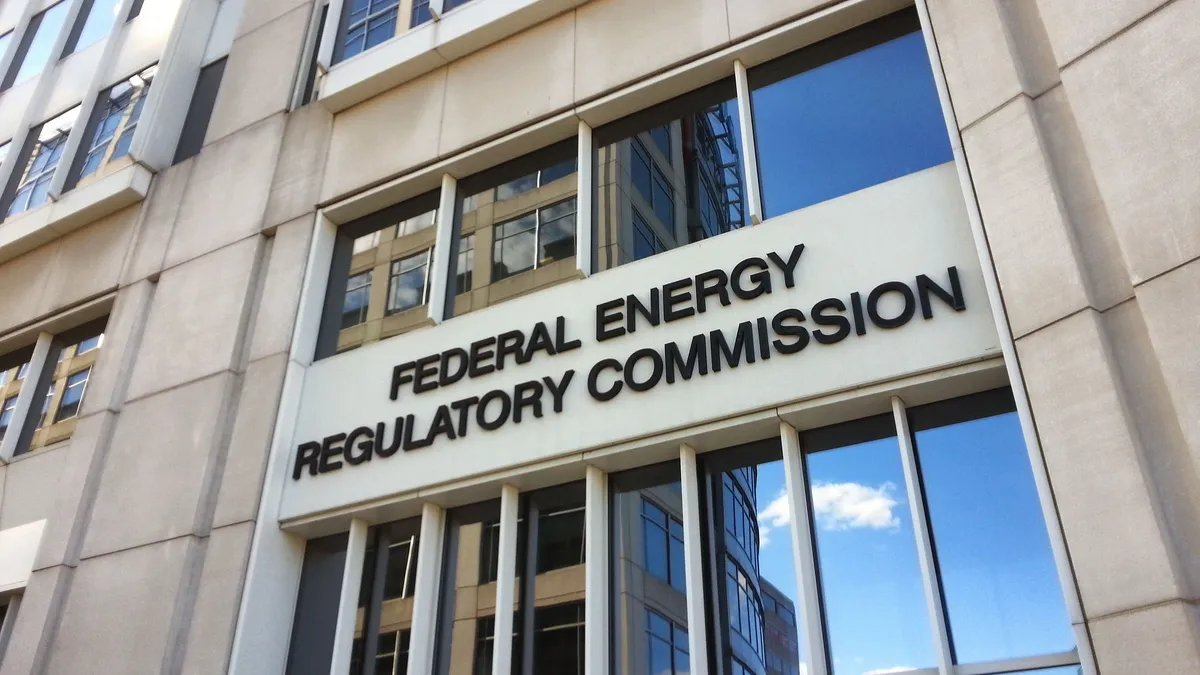Dive Brief:
-
The Federal Energy Regulatory Commission on Monday announced it would investigate whether any natural gas or electricity market violations occurred during the recent cold snap that left millions without power in Texas and Oklahoma last week.
-
FERC's announcement follows its decision, in partnership with the North American Electric Reliability Corporation (NERC), last week to investigate the mass outages across the Electric Reliability Council of Texas (ERCOT), as well as in the Southwest Power Pool and the Midcontinent Independent System Operator. It also follows calls from Chair Richard Glick for Congress and the Texas legislature to reexamine ERCOT's "go it alone" approach.
- The commission also announced it would open a new proceeding to examine the threat climate change poses to electric reliability, following FERC's decision last week to close its resilience docket, originally opened in response to the Trump administration's coal and nuclear bailout proposal.
Dive Insight:
FERC's announcements Monday follow rolling outages across Texas and the Midwest last week, triggered by grid operators, that sent customers and state officials reeling.
Texas regulators on Sunday issued a moratorium on utility disconnections, following complaints from customers that their bills spiked dramatically after the outages last week. The Public Utility Commission of Texas had previously called for ERCOT to hit its price cap of $9,000/MWh to reflect strained conditions.
Gov. Greg Abbott, R, and the state legislature have also said they are looking into a longer-term solution to address customers who can't afford their "skyrocketing" bills.
FERC does not have jurisdiction over ERCOT's electricity business, but it does have jurisdiction over the transportation and storage of natural gas, in some instances. Its investigation will include examinations into SPP and MISO, as well as those parts of ERCOT where it does have jurisdiction. The commission's inquiry into potential market manipulation or other instances of wrongdoings by the markets will be conducted by its Office of Enforcement.
"If the Office of Enforcement finds any potential wrongdoing that can be addressed under FERC's statutory authority, it will pursue those matters as non-public investigations," FERC said in a statement.
ERCOT is largely independent of FERC and federal regulation because it does not engage in significant interstate trading — it operates under its own system islanded off from the eastern and western interconnections. Glick during last week's open meeting questioned whether this structure was still appropriate, and called on Congress and the state's legislature to potentially "rethink" that approach.
"Does it really makes sense to isolate yourself and limit your ability to get power from neighboring regions, just to keep FERC at bay?" Glick said. "That strikes me as the proverbial cutting off your nose to spite your face."
FERC also announced Monday it would open a new proceeding to assess the impact of extreme weather, including droughts, extreme cold, wildfires, hurricanes and heatwaves on reliability, in order to better understand how well the grid is prepared for climate change.
"The effects of climate change are already apparent," Glick said in a statement, "and we must do everything we can within our statutory authority to ensure that the electric grid is capable of keeping the lights [on] in the face of extreme weather."
The proceeding will include a technical conference, with more details to come, according to the commission.















